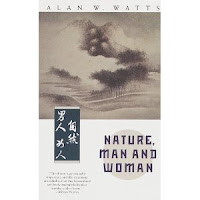I feel like the book has helped me quite a bit in understanding Laozi, Zhuangzi, as well as the general ideas of Contemplative Taoism. It draws from various original writings on Taoism, as well as some more contemporary parallels. The author, Alan Watts, also uses mostly his own translations of Laozi as well as those of others. Footnotes often draw attention to differences in translations, which also is very helpful with something as widely translated as Dao De Jing.
That said, I've read the book once and am hopeful that I understand about 50%. Definitely something to re-read once or twice. This is the point that prevents me from giving it five stars, as I feel any book on Taoism should be more straightforward and not as intellectual.
For students of Chinese, the book also helpfully offers Chinese ideograms in the margins when referring to Chinese words in the main text. Moreover, the book contains a good deal of original calligraphy, used for the names of each chapter as well as quite a few quotations from Laozi, Zhuangzi, and Liezi.
Alan Watts Books, Lectures, Alan Watts audio books, Buddhism, buy Alan Watts Books.
Monday, June 7, 2010
Nature, Man and Woman Book Review
This book was just what I needed to read when I read it. I love when that happens. It reminded me of just what part of myself has been neglected thus far in my life.... instinct, feeling (as opposed to logical thinking) and helped me relax around 'knowing' and remind me I have an 'understanding' of a different sort when I can tune it in.
Watts says: "We know that the fish swim in constant fear of their lives, that they hang motionless so as not to be seen, and dart into motion because they are just nerves, startled into a jump by the tiniest ghost of an alarm. We know that the 'love of nature' is a sentimental fascination with surface-that the gulls do not float in the sky for delight but in watchful hunger for fish, that the golden bees do not dream in the lilies but call as routinely for honey as collection agents for rent, and that the squirrels romping, as it seems, freely and joyously through the branches, are just frustrated little balls of appetite and fear. We know that the peaceful rationality, the relaxed culture, and the easy normality of civilized human life are a crust of habit repressing emotions too violent or poignant for most of us to stand-the first resting place which life had found in its arduous climb from the primordial, natural world of relentless struggle and terror."
Watts says: "We know that the fish swim in constant fear of their lives, that they hang motionless so as not to be seen, and dart into motion because they are just nerves, startled into a jump by the tiniest ghost of an alarm. We know that the 'love of nature' is a sentimental fascination with surface-that the gulls do not float in the sky for delight but in watchful hunger for fish, that the golden bees do not dream in the lilies but call as routinely for honey as collection agents for rent, and that the squirrels romping, as it seems, freely and joyously through the branches, are just frustrated little balls of appetite and fear. We know that the peaceful rationality, the relaxed culture, and the easy normality of civilized human life are a crust of habit repressing emotions too violent or poignant for most of us to stand-the first resting place which life had found in its arduous climb from the primordial, natural world of relentless struggle and terror."
Does It Matter?: Essays on Man's Relation to Materiality Book Review
In this series of essays, Alan Watts gives a snarky, matter-of-fact, spiritual approach to how we treat ourselves, each other, and the other living things on this planet. With his dash of self-aware arrogance and know-it-all attitude, he leads you through the idea of humanity and our relationship to the material world, all the way down to how we should design our kitchens. To give an example of his mildly irreverent tact: "Life, like getting an erection, is spontaneous process which collapses when one tries to force it to happen." While I may not agree with everything the man says, indeed, I must have underlined at least a quarter of this book.
With a Buddhist bent, this philosopher smart-ass takes you on a trip (and yes, he experimented with LSD) around money, food, drugs, clothing and all the material trappings that we cannot escape while living on this planet. Reading this book was a brilliantly comical and realistic inspiration, and I am still absorbing his other material.
Note: You can also download podcasts of his lectures online. I highly recommend it.
With a Buddhist bent, this philosopher smart-ass takes you on a trip (and yes, he experimented with LSD) around money, food, drugs, clothing and all the material trappings that we cannot escape while living on this planet. Reading this book was a brilliantly comical and realistic inspiration, and I am still absorbing his other material.
Note: You can also download podcasts of his lectures online. I highly recommend it.
Subscribe to:
Posts (Atom)





